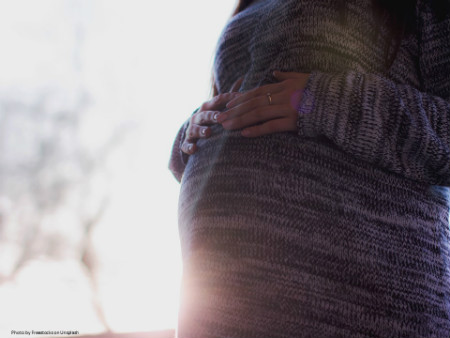Ms. A is a 27-year-old woman who is seven weeks pregnant and is currently taking duloxetine (Cymbalta). She has a history of recurrent major depressive disorder (MDD) and has had a good response to duloxetine at 60 mg per day. She has had four previous episodes of major depressive disorder (most untreated) and has been in remission for one year. Past episodes have lasted up to six months and caused difficulty with functioning at work and in relationships, although she was not diagnosed and treated until one year ago.
Ms. A is concerned about her baby’s exposure to medication, but she also is afraid that she will experience a recurrence if she stops her medication. Here are some factors to consider in advising this patient:
Higher rates of relapse are observed in pregnant women who discontinue antidepressants versus those who maintain treatment. For women with histories of MDD, the rate of relapse with medication discontinuation was observed to be 68% compared to 26% of pregnant women who remained on antidepressant (Cohen et al, 2006).
There have been no published peer-reviewed data on the use and safety of duloxetine (Cymbalta) in pregnancy. It is probable that some of the general risks seen with other antidepressants should apply to duloxetine, and are in fact included in Cymbalta’s package insert, but systematic study of pregnancy outcomes with Cymbalta are needed. It is unclear how much the data from SSRIs inform the use of duloxetine, as duloxetine has some shared proposed mechanisms of action and some different effects, and has not received specific study. At this time, we know more about the short- and long- term outcomes with other antidepressants.
In contrast, the selective serotonin reuptake inhibitor (SSRI) antidepressants have received a substantial amount of study in pregnancy regarding safety outcomes. Most studies do not show any increased risk of birth defects with SSRIs or tricylics (a class of older antidepressants).
Recently attention has focused on a range of transient neonatal distress syndromes associated with exposure to (or withdrawal from) antidepressants in utero. These syndromes appear to affect up to 25% of babies exposed to antidepressants in utero, although some studies have failed to use raters blinded to whether babies were exposed to medication or not, and many reports have not taken into consideration the contributing factors of maternal anxiety and depression. Although duloxetine has not received specific study in this area, these data regarding neonatal adaptation are likely to pertain to its use as well.
Persistent pulmonary hypertension of the newborn (PPHN), a rare condition which has been reported as having an increased association with SSRI use in late pregnancy (Chambers 2006). More recent studies have demonstrated lower risk of PPHN than initially reported or absent (Källén and Olausson 2008; Andrade 2009). PPHN was not specifically reported with duloxetine use, nor has it been included for analysis in the published studies.
Please think about what you would advise Ms. A as her health care provider or friend. What recommendations would you make to Ms. A?
Marlene P. Freeman, MD
Cohen, L. S., L. L. Altshuler, et al. (2006). “Relapse of major depression during pregnancy in women who maintain or discontinue antidepressant treatment.” JAMA 295(5): 499-507.
Chambers, C. D., S. Hernandez-Diaz, et al. (2006). “Selective serotonin-reuptake inhibitors and risk of persistent pulmonary hypertension of the newborn.” N Engl J Med 354(6): 579-87.
Källén B, Olausson PO. Maternal use of selective serotonin re-uptake inhibitors and persistent pulmonary hypertension of the newborn. Pharmacoepidemiol Drug Saf. 2008 Aug;17(8):801-6
Andrade SE, McPhillips H, et al. Antidepressant medication use and risk of persistent pulmonary hypertension of the newborn. Pharmacoepidemiol Drug Saf. 2009 Mar;18(3):246-52.







I can’t comment on how I’d proceed as a doctor, since I’m not a doctor. But my situation was exactly like Ms. A. I was on Cymbalta when I found out I was pregnant (surprise!). I had had a previous terrible bout with postpartum OCD and hadn’t planned on having anymore children because of it. I am thankful that my doctor went through EVERY SINGLE one of the points you discuss here in providing the information I needed to make my decision. I chose to continue my medication, and was happy to participate in a study so that others could learn from my experience with Duloxetine.
In the end, all we can ask for is truly informed consent. Each woman has to feel free to make the decision that is right for her. Thanks for having these discussions, MGH!!
Any issues with baby? I was given Cymbalta from my physician to take daily. I plan to try getting pregnant oon. I’m worried this might harm the baby when I get pregnant.
What are the health risks associated with it, what does it mean for the baby?
@Katherine Stone, Hi, I just read your reply…did you continue taking Cymbalta throughout a pregnancy? I was on Cymbalta and discontinued it in lieu of Prozac which my doc had told me was more studied during pregnancy. The Prozac didn’t work for me at all. The only drug that seems to be helpful for me is Cymbalta and I would really like to go back on it. If you could let me know some info, I can go to my OBGYN a little more prepared. Thanks so much!!